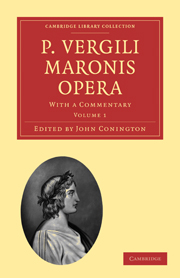Summary
The subject of the First Book is the tillage of the ground with a view to crops, chiefly corn. The mention of the uncertainty of the weather at different times of the year leads the poet to give a list of the signs of a storm and of fair weather, which he abridges from the Diosemeia of Aratus. From this he passes to the signs of the political storm which had broken over Rome, and shows that external nature had been no less eloquent there, while he prays that Octavianus Caesar may yet be spared to save society.
The various events mentioned in the concluding lines are generally considered to point to the earlier part of the period of seven years during which Virgil is supposed to have been composing the Georgics, or to the time immediately preceding that period. Mr. Merivale, on the other hand, believes the passage to have been written in the early part of 722, during the general expectation of war between Octavianus and Antonius. His explanation of the poet's supposed position deserves quoting, both for the ingenuity of the conception and for the rhetorical ability with which it is enforced. “The prevailing sentiment of gloomy yet vague foreboding found expression in the voice of a youthful enthusiast. Cherished by Maecenas, and honoured with the smiles of Octavius himself, Virgil beheld in the sway of the chief of the Romans the fairest augury of legitimate and peaceful government.
- Type
- Chapter
- Information
- P. Vergili Maronis OperaWith a Commentary, pp. 143 - 364Publisher: Cambridge University PressPrint publication year: 2010



